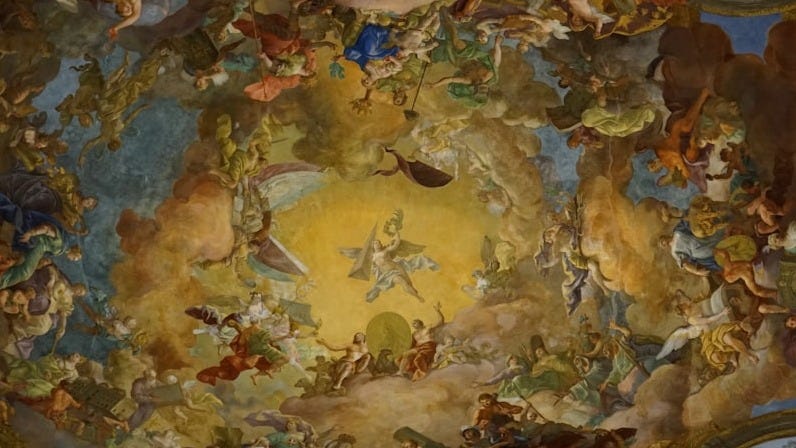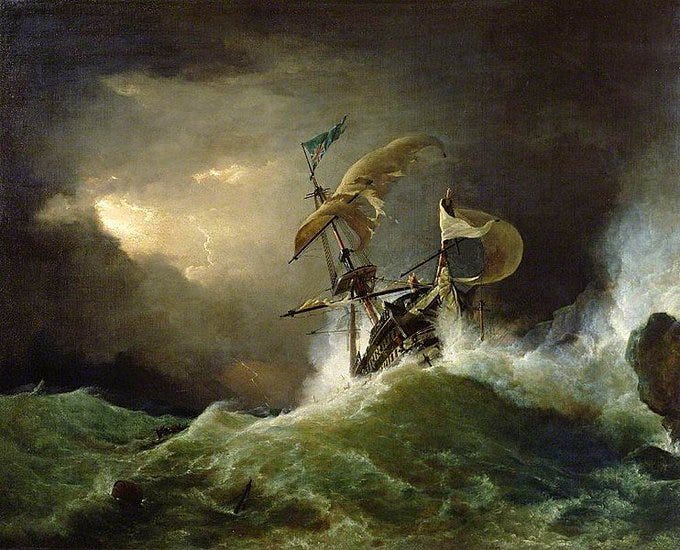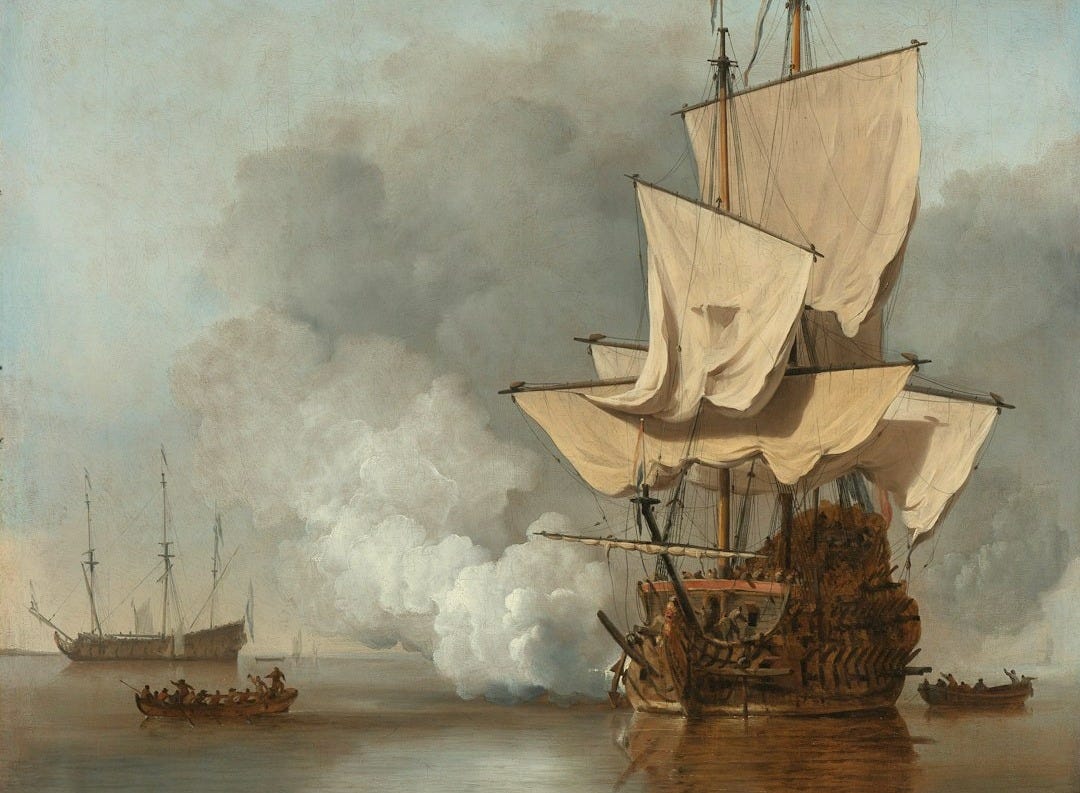Do What's Necessary: How to Find Your Will
The good life isn't something that happens by chance, no. You can only achieve it if you first discover your will, but that can be tricky.
Hey all!
Apologies for the unexpected week off, my daughter is finally feeling better, and things are settling down (hopefully) again.
Truthfully, the added time allowed me to unravel a few more things so that I was able to piece them together and make a topic as dense as this a little more palatable.
I hope that you enjoy it!
Reminder! If you’re on the go, the Substack app allows you to listen to this newsletter! The upper righthand corner has a ▶️ button! Click and Enjoy!
Reach for Something Else
I couldn’t resist.
The winter months put me in a mood, especially since North Dakota’s frozen plains and brutal cold mimic the home of this famous novelist.
Fyodor Dostoyevsky’s The Brothers Karamazov has once again found its way into my hands as I sit at night and get a smidge of reading in before bed.
I’ve heard it said that when it comes to Great Books, there is no “reading” them, only “rereading” as they’re so potent with wisdom that you could reread them a dozen times and come out with something new and profound, which you had not understood the previous 11 times.
If you’ve never read it, and are looking for something to truly capture you, look no further!
Do What’s Necessary
When, in the course of your journey towards a life of integrity and significance aimed at the end which you’ve deemed as “good”, the seas run high and your stomach turns and your mind is flooded with regret and doubt, you’ll need something not so fickle as your emotions and twice as resolved than you mind.
“Navigare necesse est, vivere non est necesse.”
(It is necessary to sail the seas, it is not necessary to live.)
This line, first penned by Plutarch and then picked up as a motto of the Hanseatic League and scribed a myriad other places, reaches down into a core faculty of the human psyche—the Will.
The good life isn't something that happens by chance, no. You can only achieve it if you first discover your will, but that can be tricky.
Out of all the faculties of mankind, the will is by for the most mysterious and thus misunderstood, despite it’s essential function in action and necessity to personhood.
As the philosopher Blaise Pascal rightly stated:
There is an universal and essential difference between the actions of the will and all other actions… The will, which prefers one aspect to another, turns away the mind from considering the qualities of all that it does not like to see; and thus the mind, moving in accord with the will, stops to consider the aspect which it likes, and so judges by what it sees. (Pensée #99)
That’s a dense statement, but there’s a few key things to pull out that’s important to understanding the nature of the will:
Actions that are executed by the will are different than any other action.
The mind aims itself according to the judgements of the will, not the other way around (which is the most common belief).
Our minds completely ignore things that the will does not find significant.
The will is the true faculty of judgement (aka measurement).
You should see some familiar language and are possibly puzzling things together, but I should stop before I get too far ahead of myself and begin jumping around like I’m oft tempted to do; I think it’s important we reference back to our initial quote and how this information helps us in our pursuit of the good life.
There’s an obvious paradox in our quote: the necessity of sailing is greater than the necessity of life itself.
How can that be? How can anything be greater than life… the very breath required to sail is somehow less significant than sailing? Isn’t that like saying “it’s necessary to write, but it’s not necessary to read”?
This is our modern attitude, one that has particularly gripped America over the past two decades—safety and security above all else.
As we perpetuate safetyism, we simultaneously lose any sensation of volition, or choice, something absolutely vital to a life of integrity and significance.
Safetyism gives us the underlying assumption, as it’s a societal custom and customs are as essential to our development as our biology, that our immediate lives are the single-most significant thing and that anything threatening to it should be immediately disregarded, unpursued, and if at all possible, destroyed.

The problem with this idea is that it fundamentally misunderstands what it means to be human, and cripples our will so completely that there are many who may never recover from these blows.
When we think of elevating something above life itself, we are making either a very impulsive and emotional decision, or expressing our will in it’s fullness.
Disclaimer: I am not advocating for anyone to willfully place themselves in harms way as a means to challenge their assumptions and attempt to find their will as discussed in this post.
What I am stating is that there’s a measuring happening here, a measuring upon which a great deal rests; namely a life of our choosing or not.
This measuring is done by the will, as Pascal identified, and is working to balance both our instincts and our conscious knowledge.
Safetyism, as much as we may see it as a construct of the mind, is simply a societal precedent set on the natural inclination we all have toward self-preservation and is thus external validation of our instincts.
This is a presupposed measurement, something that we’re told has a particular kind of value, despite us actually comprehending it’s value.
Asserting that something is more necessary than an instinct is a position only humans, against all other species of animals ever known, has the luxury of leveraging.
This is a kind of value that we are choosing to ascribe to something, not letting it’s worth be determined for us; important to distinguish because no attention would be given if it weren’t contrary to some instinct (or if it were a repressed instinct contrary to a conscious will).
The reason it’s a crucial position to remind yourself of is because our beliefs quite literally shape our entire world, and I do not say that lightly.
What we believe is inevitably what we act out, and how we act is the only way things change; not through deliberation or intention, but purely through action. No one better could illustrate such a pragmatic principle as William James himself:
Nature cannot change the past to suit our thinking. She cannot change the stars or the winds; but she does change our bodies to suit our thinking, and through their instrumentality changes much besides; so the great distinction between objects which we may will or unwill, and objects which we can merely believe or disbelieve, grows up, and is of course one of the most important distinctions in the world… Nature sometimes, and indeed not very infrequently, produces instantaneous conversions for us. She suddenly puts us in an active connection with objects of which she had till then left us cold. “I realize for the first time,” we then say, “what that means!” This happens often with moral propositions. We have often heard them; but now they shoot into our lives; they move us; we feel their living force. Such instantaneous beliefs are truly enough not to be achieved by will. But gradually our will can lead us to the same results by a very simple method: we need only in cold blood ACT as if the thing in question were real, and keep acting as if it were real, and it will infallibly end by growing into such a connection with our life that it will become real. It will become so knit with habit and emotion that our interests in it will be those which characterize belief. Those to whom God” and “Duty” are now mere names can make them much more than that, if they make a little sacrifice to them every day.
Even in this statement exists the dichotomy of nature (instinct) and will.
There is much that is indeterminable by our will alone, yet we should resist giving up any part of what little choice we have no matter how great the effort and sacrifice that is demanded for our will is what makes us human.

When considering the simplest way to put it, I believe that it’s best to say that, in order to reach for more, we should spend time discovering something that we must do.
Must brings a similar feeling as the “necessary” of the first quote; it should give us such a bearing and focus that it’s as similar to our natural instinct as we might ever achieve.
To act with such force of will as though it were an instinct is perhaps all that we could reach for in our journey toward a life of integrity, significance, and what we might otherwise identify as good.
If you’re not sure where to do with this, here’s how I can help:
Make sure you’re subscribed to get this newsletter in your inbox every week for free. (P.S. You’ll also get a beautiful reading list when you subscribe!)
Check out my longer articles for deeper insights.
Comment your questions or pop them into the chat ⬇️
If none of these options are what you’re looking for, respond to this email or DM me on any one of my socials because I’d love to hear what you have to say!
Thanks for reading!
See you next week!!
xDevan







